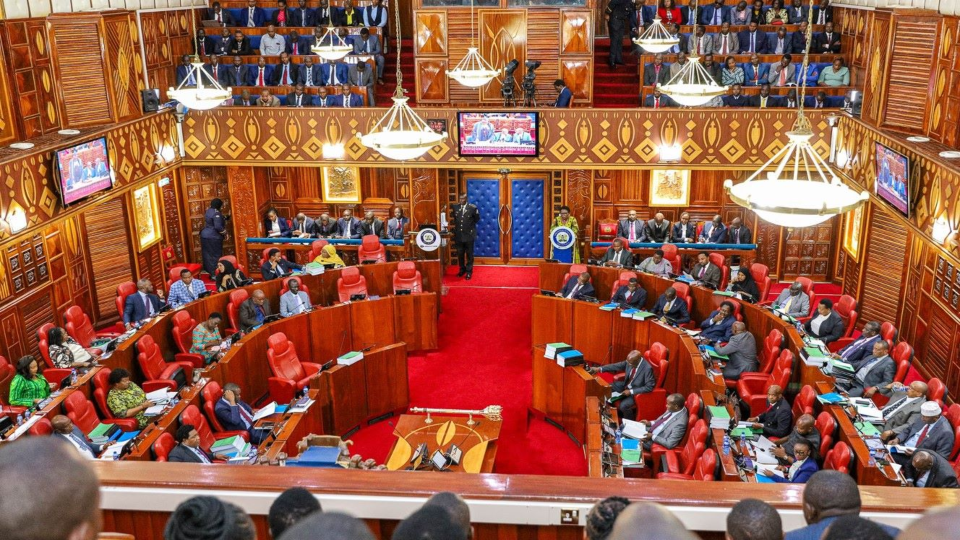Senators Uphold Oversight Role Over County Leaders Despite Opposition Pushback
In a firm stance on their constitutional duties, Kenyan senators have reaffirmed their authority to call county governors to account, countering recent criticisms from prominent opposition figure Raila Odinga. The debate highlights ongoing tensions around devolution and the balance of power between national and local governance structures in Kenya.
During a recent Senate session, Speaker Amason Kingi led the defense of the chamber's practices. He emphasized that the Senate's role includes protecting county interests and overseeing the use of national revenue allocated to local governments. Kingi pointed to specific constitutional provisions that grant Parliament the power to summon individuals for information or evidence. This authority, he argued, ensures accountability for funds distributed to counties, preventing self-regulation by local administrations. Supporting his position, Kingi referenced judicial decisions that clarify the Senate's oversight as a secondary layer following initial reviews by county assemblies.
The senators' response directly addressed Odinga's remarks, where he described the frequent summoning of governors to Nairobi as inefficient and detrimental to devolution principles. Odinga, a longtime advocate for decentralizing power, argued that primary oversight should rest with county assemblies rather than the Senate. He suggested that only specialized parliamentary committees hold the legitimate right to request appearances from county executives, and even then, not necessarily from governors themselves. In his view, such practices pull leaders away from their local responsibilities, undermining the goal of empowering communities through stronger county-level decision-making. Odinga called for greater resource transfers from the national government to the 47 counties, stressing the need to avoid micromanagement and foster genuine local autonomy.
Senators pushed back strongly, insisting that their mandate remains non-negotiable without constitutional changes. Kakamega Senator Boni Khalwale urged critics like Odinga to pursue amendments if they disagree with the current framework, rather than questioning established procedures. Other lawmakers echoed this sentiment, viewing the summons as essential for transparency in handling public funds. They highlighted that court rulings have consistently upheld the Senate's role in this process, including a High Court decision that promotes collaboration between the Senate and counties for effective devolution, and a Supreme Court ruling that positions the Senate as the final oversight body.
This exchange occurs amid broader discussions on governance and accountability in Kenya. Recently, some senators have demanded that President William Ruto appear before Parliament to provide evidence on allegations of bribery involving lawmakers. These calls stem from claims that certain officials solicited funds from cabinet secretaries and governors, prompting accusations of corruption within legislative circles. Nairobi Senator Edwin Sifuna, an ODM member, has challenged the president to name those involved, arguing that such statements damage Parliament's reputation without substantiation. Sifuna also accused Odinga of misleading governors on the Senate's authority, further intensifying the intra-party and inter-branch frictions.
The controversy has sparked public reactions, with some observers questioning Odinga's consistency on oversight matters, given his past emphasis on fighting corruption at all levels. Incidents like Nandi Governor Stephen Sang's failure to appear before a Senate committee have added fuel to the debate, illustrating the practical challenges of enforcement. Additionally, allegations of senators receiving large bribes, such as from an Isiolo governor, have led to celebrations among some lawmakers when defended by leadership, raising concerns about internal integrity.
At its core, the dispute reflects deeper questions about Kenya's devolved system, established under the 2010 Constitution to distribute power more equitably. While supporters of stronger Senate oversight argue it safeguards national resources, proponents of enhanced local control see it as overreach. As debates continue, calls for clearer guidelines or potential reforms may shape future interactions between national and county institutions. Odinga, with his history as a key architect of devolution during his tenure as prime minister from 2008 to 2013, remains a central voice in these discussions


